Get to Know Our Educational Programming
- Featured, From the Field
- Ocean Health, Permaculture, Whole Systems Design

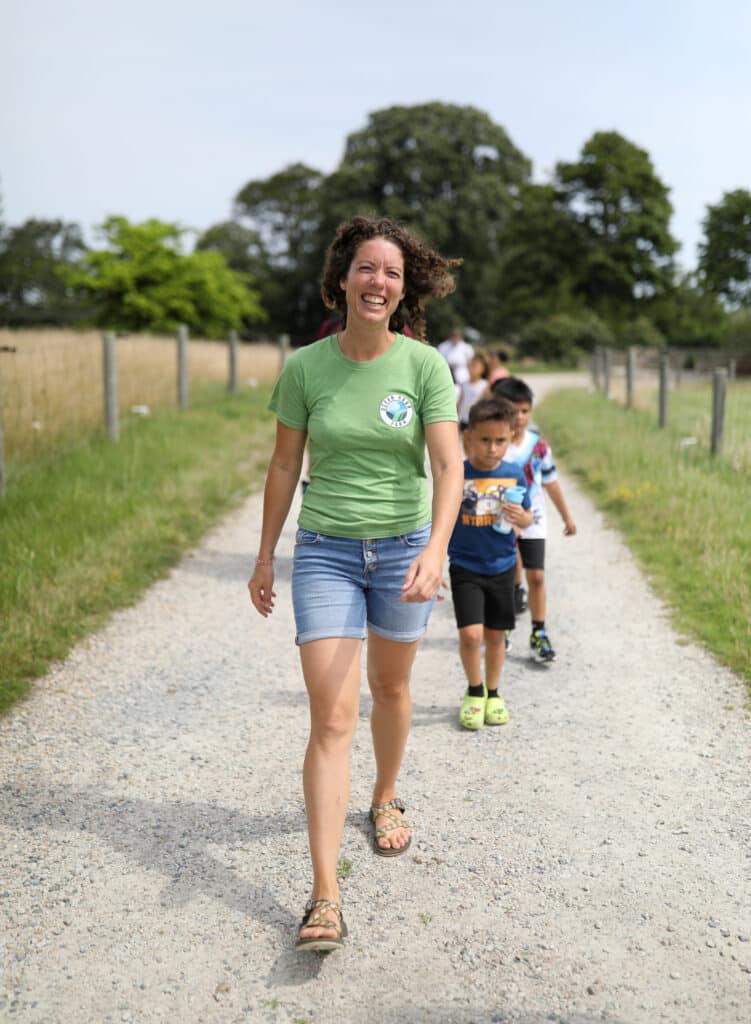
As Ocean Hour Farm becomes a center for regenerative agriculture, whole systems design, and research into the connection between land and sea, the Farm staff are developing educational programming to share lessons learned from the land. Education is the Farm’s north star, a guiding light in the quest to enrich the community with living examples of sustainable agriculture and land stewardship.
The team does this through events, workshops, and collaborations with schools that bring in students, land and sea farmers, and other land stewards to connect, explore, and learn. Program Director, Beth Alaimo, pilots this effort. A long-time environmentalist and educator, Alaimo arrived at the Farm when it was established in 2022 and swiftly set to work curating community relationships and building educational programming. In lieu of large-scale public tours or duplicating efforts from across the local community, the Farm is currently prioritizing deep partnerships that will lead to long-term learning opportunities.
“We invited people here, told them about our mission and what we’re thinking about doing, got them excited for it, and also got a better understanding of where Ocean Hour Farm and our educational programming can fit into the broader scope of what’s happening in Rhode Island and our region,” Alaimo says. “A great first step was to partner with student-serving organizations and schools, so one of our first partnerships was with Rogers High School, which is not even a mile up the road.”
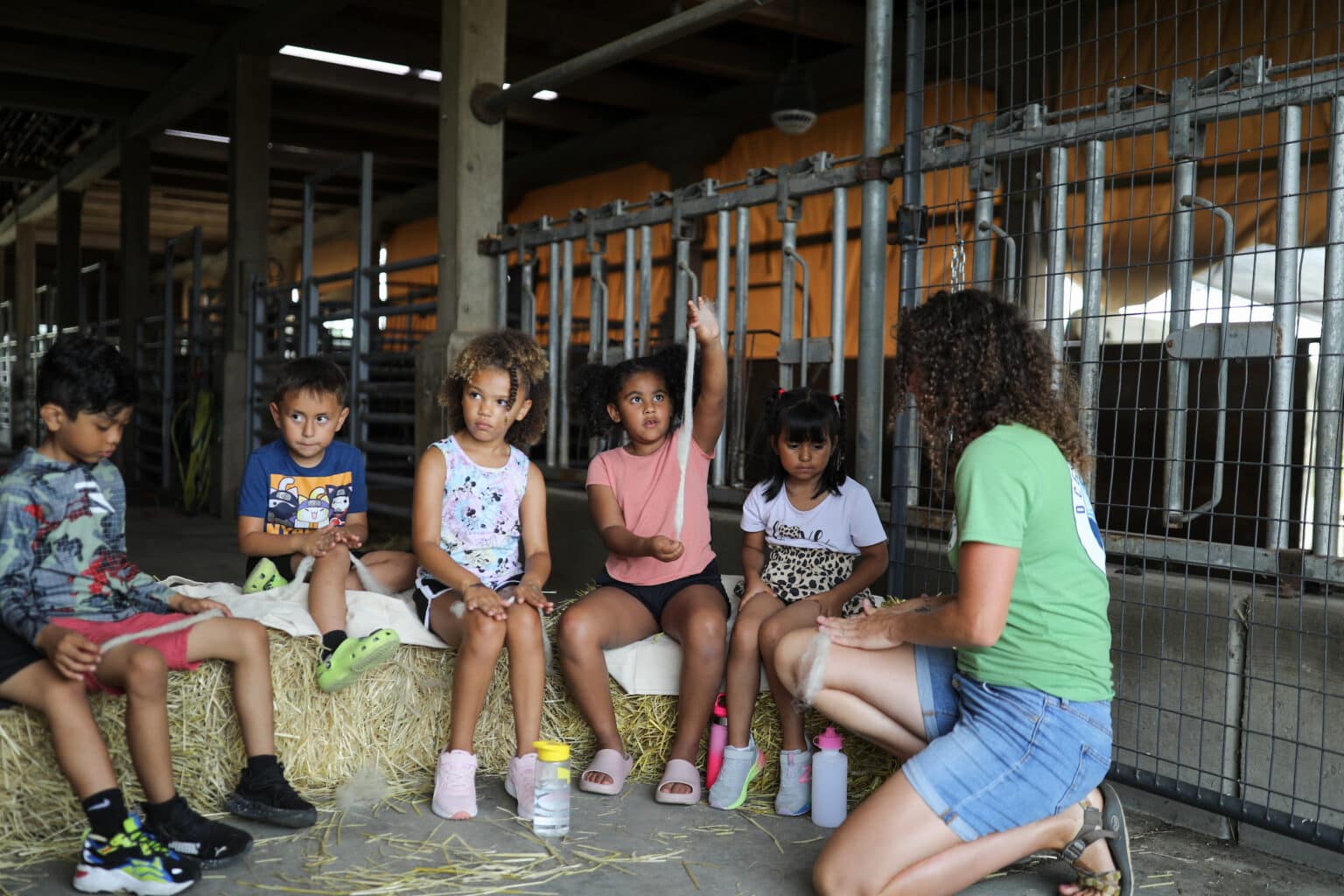
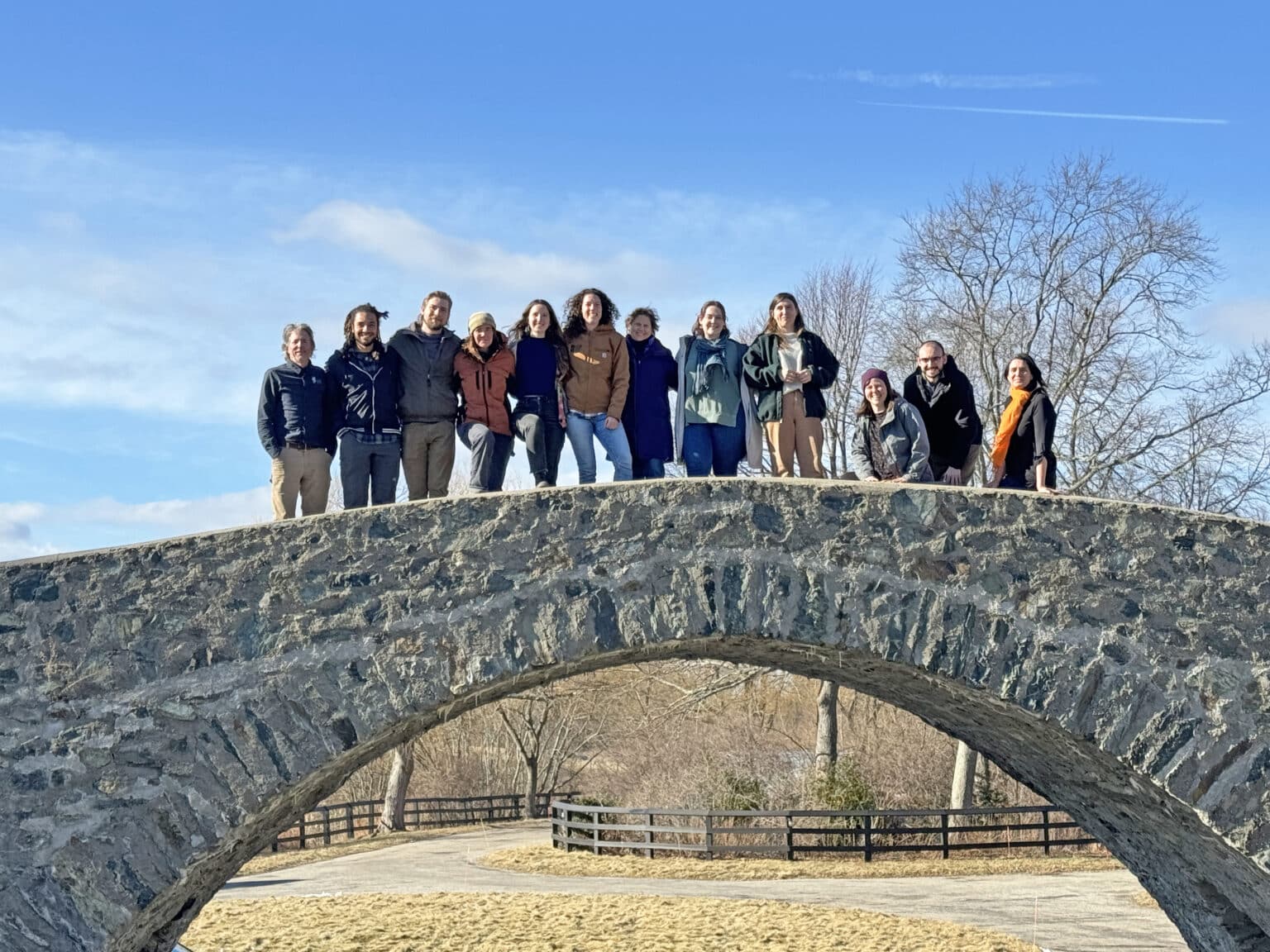
Throughout the academic year, environmental science students in their junior and senior years visit the Farm monthly to learn about soil health and watershed science. Standing at the top of the Farm’s highest point, witnessing the water draining downhill toward Narragansett Bay, students see firsthand how water moves through land and how that affects the ocean. Then, they consider decisions they can make that would improve the relationship between human-designed and natural systems.
The Farm will also offer workforce training to high school young adults through internships and apprenticeships. Opportunities will range from a focus on environmental education to crop production and livestock management. The Farm’s team plans to work closely with the Rhode Island Nursery and Landscape Association as well as the Young Farmers Network to reach diverse audiences. Alaimo says that even if students don’t pursue a career in agriculture, the knowledge and environmental lens they gain here will empower them to make more sustainable decisions in the future.
“They still likely will be designing some sort of system. And all systems, for the most part, whether we like it or not, impact the environment and are reliant on some sort of natural resource or impact a natural resource,” she says. “It’s super important to give young adults these skill sets to carry with them into whatever path, career, or livelihood they end up in. It fosters an awareness.”
Programming here runs the gamut from serving young adults and young professionals to established farmers with years of experience. Land and sea farmers in the state and region have a wealth of knowledge and are true stewards of the land, Alaimo continues, so any program with them is more of an exchange than a lesson and is an opportunity to collaborate, innovate, and try new things together.
The Farm recently developed a soil lab with a fleet of microscopes to help farmers identify and resolve issues in their soil. Partnering with the Northeast Organic Farming Association (NOFA) of Connecticut and Massachusetts, farmers can attend in-person training to learn how to use a microscope, examine soil from their farm, and identify the microbes present to inform their land management practices.
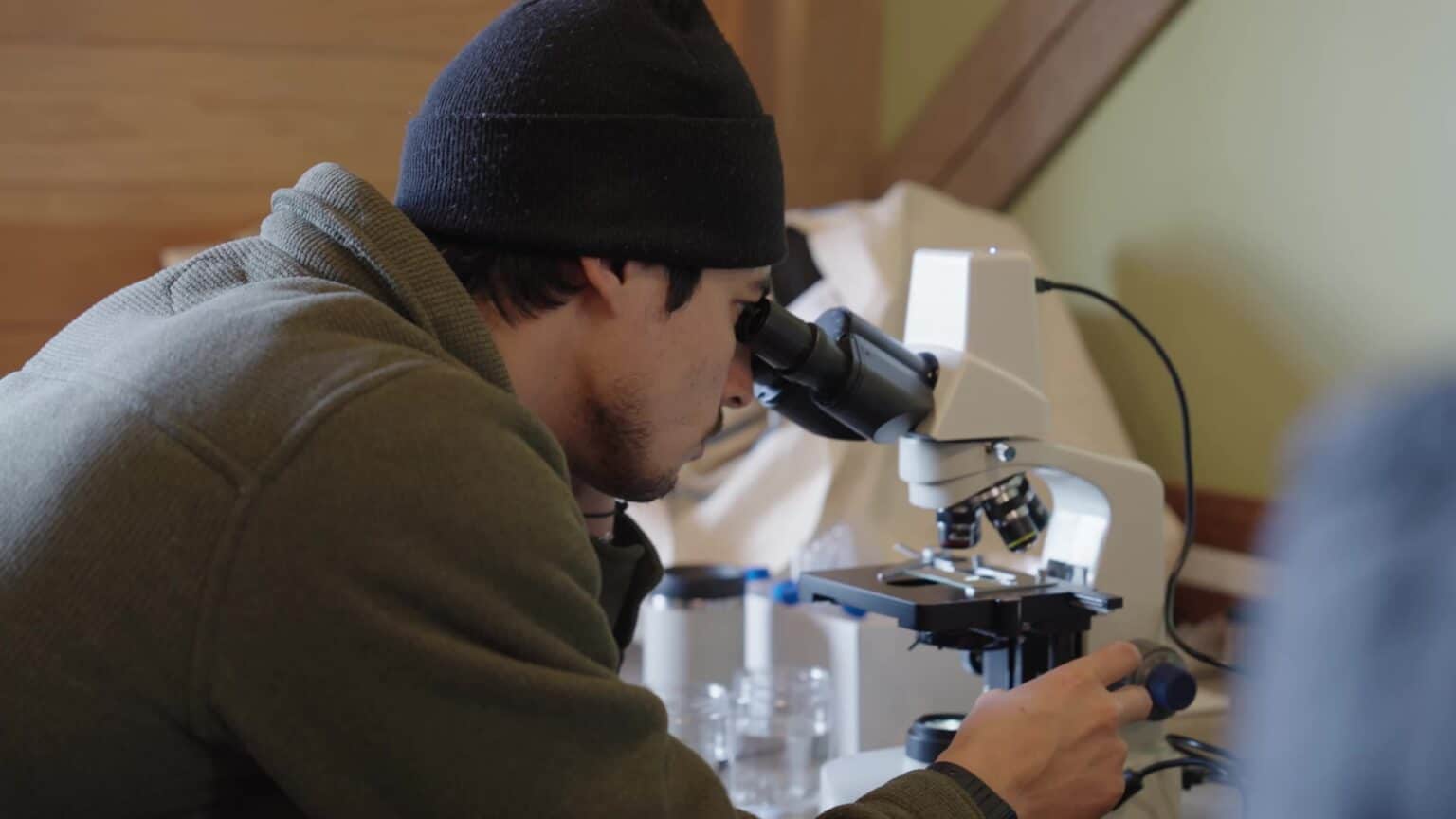
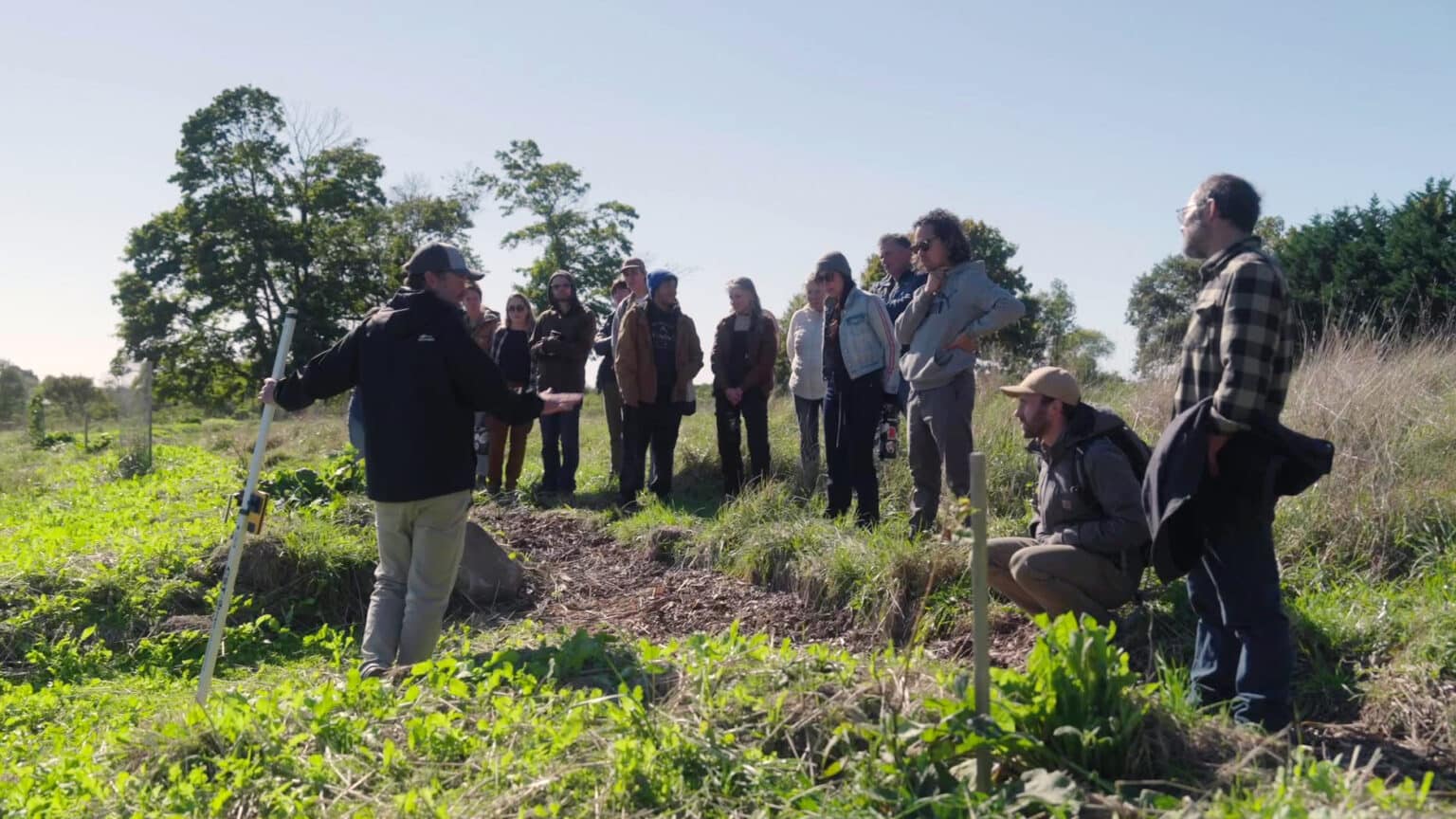
“This program is neat because it’s been adapted to the reality of farmers. They’re not scientists sitting in a lab all day, and they have a full plate of work. But here, they can spend an hour looking at their soil, get a better understanding of what they’re working with, and be able to make really impactful decisions,” Alaimo says. “Adult education is super important to our work, understanding the challenges farmers face here in our region, and how our educational programming can best serve them.”
For two years, Alaimo has been the sole staff member of the education department, but with another staff person coming onboard, Grace Logan, Alaimo is spending time reflecting on which programs were most impactful, aligned best with the Farm’s mission, and are worth continuing in years to come.
“We’re also building the skills of the staff on site so we can be educators and subject matter experts, too. Because really, we’re all educators, teaching the skills that we have and passing them on,” Alaimo says.
The Farm is also adding public workshops that target land stewards. Topics will vary depending on what implementations are happening here at the Farm. Recently, Farm staff hosted a workshop on how to design and implement swales for optimal water harvesting.
“If you have a lawn or land that you manage, even if you’re not a farmer, there’s still a way that you can contribute. One of the ways that you can do that is to transition over to natural lawn and land care. If you’re using pesticides, fertilizers, or any sort of chemical sprays on your lawn, those nutrients are going right into our waterways. Research shows that it harms communities, that it harms the soil ecosystem, and we also know that the soil ecosystem impacts all the other natural systems. So, by making that one decision, you’re not just hurting the soil on your lawn or the waterway near your property, but you’re also contributing to other challenges in our greater environment. Those daily decisions that you make as a consumer and as a person who’s overseeing a piece of land, you can make a big impact and a big difference,” Alaimo advises.
She adds, “It’s important for the community to understand that we are part of the natural world, we’re part of the environment, and we need to design our systems in a way that we can continue to sustain ourselves and our communities for perpetuity.”
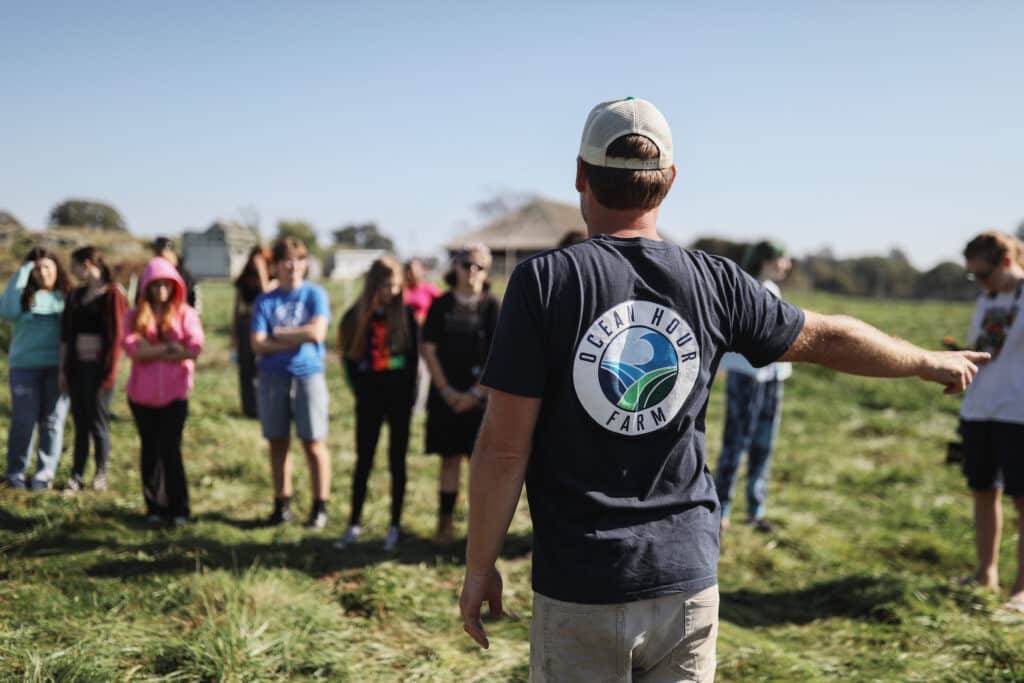
NOFA/RI – Northeast Organic Farming Association of RI (nofari.org)
RINLA Home – Rhode Island Nursery and Landscape Association – RINLA.org
Regenerative Agriculture 101 (nrdc.org)
What Does It Mean to Steward Land and Manage for Resiliency? (nature.org)
Keep America Bountiful® – American Farmland Trust